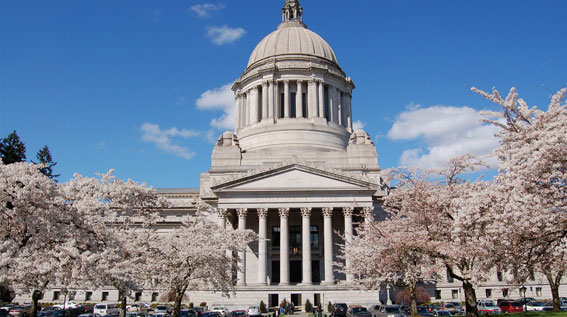The Washington Legislature has passed and Governor Inslee is expected to sign Senate Bill 5163, which significantly amends Washington’s wrongful death and survival statutes to allow parents, siblings and non-resident parents to bring suits based on the death of adult children that were previously barred. The amendments also expand recoverable damages.
History of Washington’s Wrongful Death And Survival Statutes
Beginning in the early twentieth century, the Washington State Legislate enacted a series of statutes that gave particular family members the ability to sue for the wrongful death of a loved one. But these statutes specifically excluded certain groups of beneficiaries from bringing suit to recover for the death of a loved one. For example, the parents of an adult child who was unmarried and had no children could not sue for the wrongful death of that loved one unless they were financially dependent on that adult child. Further, even if the parents were financially dependent on the adult child, they could not bring suit if they were not United States residents.
The Legislature made the 2019 amendments in part as a result of the fallout from the tragic 2015 Ride the Ducks crash in Seattle, Washington. There, several young people from other counties died in that crash, but their loved ones were denied standing to bring an action to recover for the loss of their loved ones because the family members were not United States residents at the time and their families did not financially depend on their deceased adult children. This bill similarly addresses this issue as applied to immigrant workers and their families, removing limitations previously championed by companies reluctant to pay damages arising from workplace injuries. The bill also impacts the ability of families to recover on behalf of disabled adult family members who generally lack financial dependents.
The amendments resolve issues stemming from outdated and racist laws that viewed farmhand children as chattel valued only as an economic contributors, and passed with the intent to prohibit Chinese nationals working on railroads and in mines during the early twentieth century from recovering on behalf of deceased family members.
Experts in the legal field have explained that Washington’s former wrongful death laws make it “cheaper for a defendant to kill a plaintiff than to injure him [or her].” This is particularly true for single adults without children who do not financially support their children or siblings.
Healthcare providers, local governments and state Republicans strongly opposed the amendments.
Amendments To Washington’s Wrongful Death And Survival Statutes
Washington’s wrongful death and survival statues include RCW 4.20.010, 4.20.020, 4.20.046, 4.20.060, and 4.24.010.
For instance, under the general wrongful death statute, the personal representative of a loved one’s estate can bring a cause of action on behalf of specified beneficiaries for damages they suffered as a result of the decedent’s death such as monetary losses and damages resulting from the loss of the relationship with the loved one. RCW
There are two tiers of beneficiaries in a general wrongful death action. The primary beneficiaries are the loved one’s spouse or domestic partner, and children. The secondary beneficiaries are the parents and siblings, but under the previous statute, they could only recover if there are no other primary beneficiaries, they were dependent on the decedent for support, and they resided within the United States at the time of the decedent’s death.
Under a general survival action, any cause of action the loved one could have brought prior to death may be brought by the personal representative of the decedent’s estate. The recoverable damages include pecuniary losses to the state such as loss of earnings, medical expenses, and funeral expenses. The estate also may recover, on behalf of beneficiaries in the general wrongful death statute, damages for the pain and suffering, anxiety, and emotional distress suffered by the decedent.
The 2019 legislation amended the general wrongful death and survival statues to change the beneficiaries entitled to recover as well as the damages available under these actions.
With regard to beneficiaries, the bill removed the dependency and residency requirements for secondary beneficiaries—parents and siblings—under the wrongful death statute, RCW 4. Now, a parent or sibling may be a beneficiary of the action if there is no spouse, domestic partner, or child, without having to show dependence on the deceased loved one and regardless of whether the parent or sibling resided in the United States at the time of the loved one’s death.
On damages, the bill specified that both economic and non-economic damages are recoverable against the person or entity causing the death under the general wrongful death statute in such amounts the jury determines to be just under the circumstances of the case.
The bill also removed the dependency and residency requirements for secondary beneficiaries—siblings and parents.
The legislature estimated that the bill would result in a twenty percent increase in claims, which would be about fifteen to eighteen cases per year.
The bill now awaits Governor Jay Inslee’s signature.
Bree is an associate in the Seattle office of Galanda Broadman and an enrolled member of the Seminole Nation of Oklahoma. Her practice focuses on defending individuals’ civil rights in federal, state and tribal courts. She can be reached at (206) 735-0448 or bree@galandabroadman.com.





